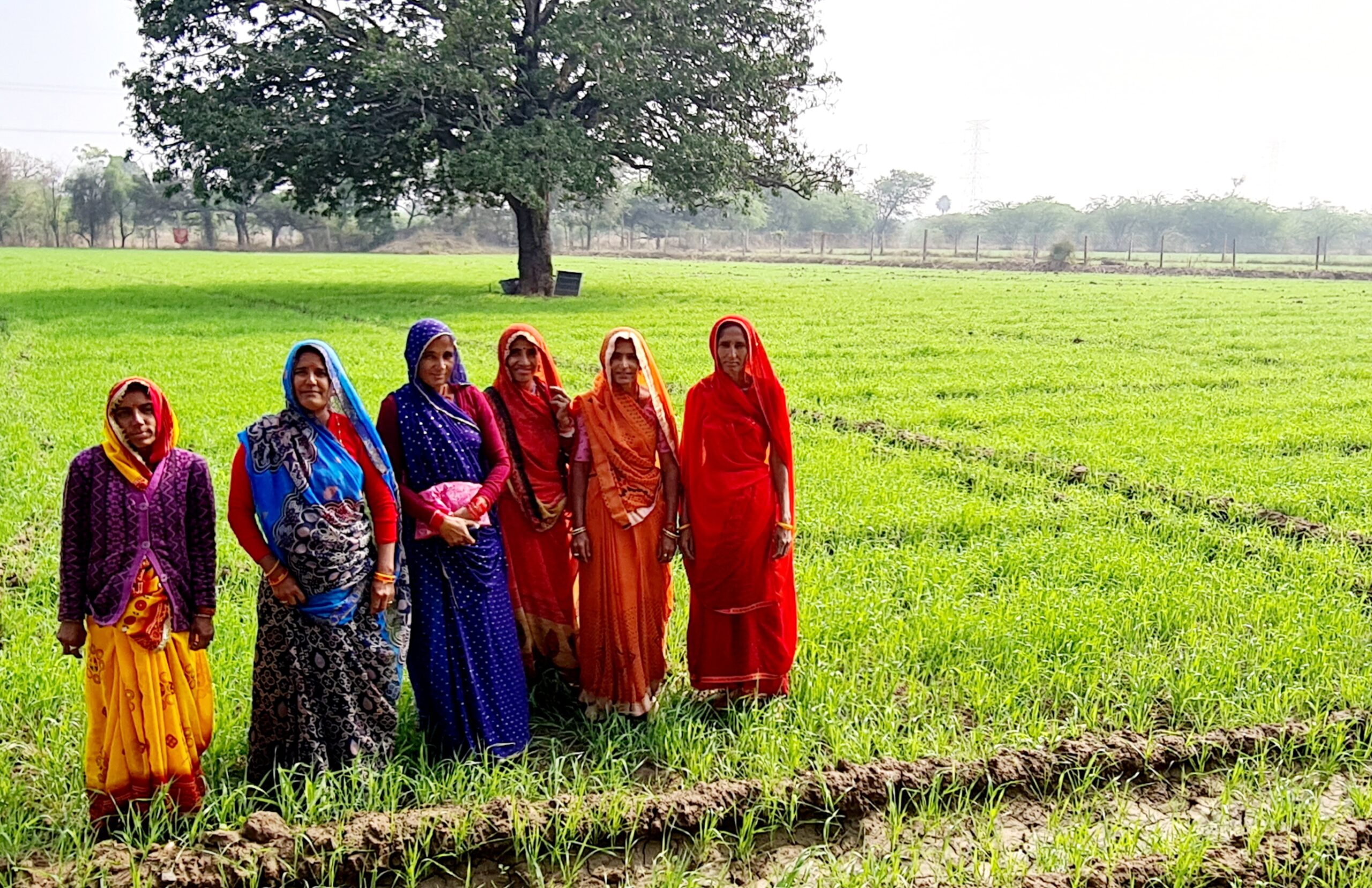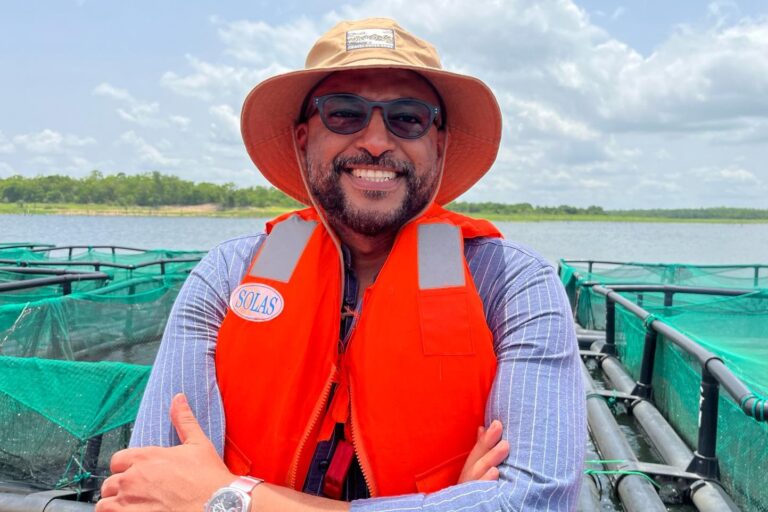By Neena Bhandari
A prolonged brush with the healthcare system during his high school years steered Vivekananda Jha towards medicine. Multiple visits to the doctors, uncertain diagnosis, rudimentary care and the prolonged physical, mental and financial stress of ailment, made him determined to pursue medicine as a career.
He grew up in Bihar, and graduated from the Patna Medical College, before moving to the prestigious Postgraduate Institute of Medical Education and Research (PGIMER) in Chandigarh to do his post-graduation in Internal Medicine and Nephrology.
“Nephrology offered the possibility of extending a patient’s life even after they had developed advanced end-stage organ failure by providing them with dialysis or kidney transplantation, whereas with other organs that was not the case in the late 1980’s”, says Dr Jha, who hails from a family of teachers, and so he is the only doctor “on-call” in their entire extended family.
He then joined the nephrology faculty at PGIMER. In the initial years, his research interests were focussed on basic medical sciences. He did a research Fellowship at Harvard University, and went on to set up the Department of Translational and Regenerative Medicine at PGIMER. However, He says, “The ever-increasing burden of chronic diseases, the toll they took on patients and families changed the focus of my research. We had patients with advanced disease coming from distant, relatively underserved areas, including my home states of Bihar and Jharkhand. They seemed to not have had access to medical care in the early stages of their disease and as a result their disease had gone unchecked. It was heartbreaking to see patients with life-threatening complications that could have been prevented had effective medical care been available closer to home early in the stage of their disease. This was the trigger which really attracted me to the research programs of the type in which The George Institute for Global Health was engaged”.
The Institute’s main focus was on Non-Communicable Diseases (NCD) and kidney disease was very much at the centre of it. So, he joined the Institute in 2013, bringing in a wealth of international experience. He has been associated with a number of international nephrology organisations in various capacities, including leadership roles. He is the President-Elect of the International Society of Nephrology, and a member of the World Health Organisation’s Expert Advisory Panel on Human Cell, Tissue and Organ Transplantation.
“It opened my eyes to the global burden of disease and I realised that the problems we face in India are not necessarily unique to our country, but universal. There is a need to develop models of care delivery, which are efficient, affordable, scalable, work in the existing healthcare system and support the patients with chronic diseases throughout their lives. These models could then be replicated to other low-resource situations in other countries”, says Dr Jha, who is currently the Executive Director of the Institute in India and a James Martin Fellow at the University of Oxford.
KIDNEY DISEASE: Elaborating on his area of expertise, Dr Jha says, “Kidney disease provides a unique opportunity to study and influence the entire NCD paradigm as it is the prototype condition in which there are few, if any, symptoms in the early stages of the disease. Once it advances, its effects involve many organs, and little can be done to reverse the disease or its complications. When it is very advanced, the treatment that patients require, for example dialysis or transplant, are extremely expensive and have major impact on their quality of life. So, it is vital to be able to prevent it in the nascent stages. We, in fact, have effective strategies for this, but health systems around the world have failed in taking this knowledge and implementing it where it is needed”.
“The development of kidney disease is influenced by many factors – genetics, socioeconomic conditions- and the environment. Pollution and climate change related phenomena are posing additional challenges. Many of these factors are preventable, but require commitment and sustained action”, he adds.
He suggests the need for developing technological innovations to develop effective, but cheaper alternatives for complex technologies used in healthcare delivery. The Institute is currently working on developing a prototype of an affordable dialysis. He also emphasises the strong need for evidence-based treatments. “Many doctors, for example, treat patients with drugs under the belief that the given treatment is effective, but fail to take into account the potential harms. We need to do more high-quality clinical trials to find the most effective and cost-effective treatments for our patients”.
Dr Jha has been working with the WHO and other professional societies, building on the 2008 Declaration of Istanbul on Organ Trafficking and Transplant Tourism, to persuade countries around the world to put in place legislation and policies to stop the unethical and exploitative practice of organ trade.
HICCUPS IN THE SYSTEM: The Institute’s major challenges include integrating the research program and its findings into the country’s existing healthcare system. “We need to innovate – use enabling technologies to empower and strengthen the system, which is currently not uniform and has multiple stakeholders. The Centre and states have their own variations, and then there is hierarchy with doctors at the top followed by nurses, and Accredited Social Health Activists (ASHAs) at the lowest rung of the healthcare delivery ladder. Primary Healthcare Centres often don’t have doctors and adequate supply of medicines. There are deep-rooted societal barriers that exclude, for example, tribals, women, the elderly or young children. We have to find a solution that eliminates inequities and makes the healthcare delivery system inclusive”.
FUTURE FOCUS: “Our ambition is for the Institute to be known as the “go-to” place for finding evidence-based solutions to the major healthcare challenges in India, developing guideline-based, high quality care delivery for management of prevalent diseases. We also want to increase our role in shaping the healthcare conversation in India and focus on promoting equity to ensure no one is disenfranchised from the healthcare system, and people with potentially disabling health conditions receive appropriate essential healthcare throughout the course of their lives”, he adds.
He would like the Institute to make a significant contribution to building capacity for providing quality and evidence-based healthcare and ensure that the `Right to Physical and Mental Health’ as enshrined in the Constitution is implemented.
Note: This interview is part of the 10th anniversary of The George Institute for Global Health in India booklet.
© Copyright Neena Bhandari. All rights reserved. Republication, copying or using information or photographs from neenabhandari.com content is expressly prohibited without the permission of the writer and the media outlet syndicating or publishing the article.



Dr. Jha is an inspiration to us all. One of the greatest challenges in aligning healthcare with evidence-based science is nurturing a scientific temperament — not just in institutions, but across society, including among those who already identify as scientific thinkers. Science thrives in analytical minds that question norms and drive innovation.
A vast gap exists between rural communities and global scientific progress. Cultural and religious biases often overshadow science, leaving many without access to accurate, evidence-based knowledge. It’s the responsibility of institutions and scientific leaders to bridge this divide for achieving meaningful progress.